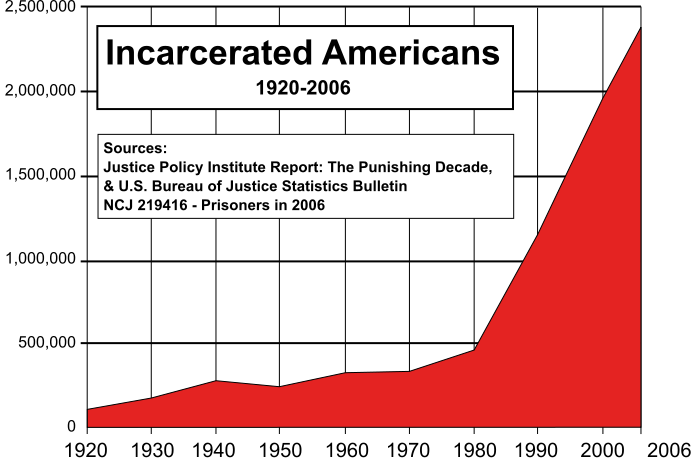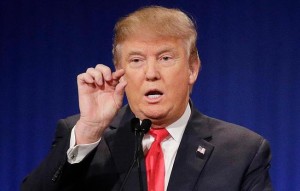 I have been writing a long time. For most of that time, people said I was “pessimistic” and I replied that what they saw as pessimism was realism.
I have been writing a long time. For most of that time, people said I was “pessimistic” and I replied that what they saw as pessimism was realism.
What I foretold, in broad strokes, has come to pass. Climate change is past the point of no return, the housing bubble burst, austerity was a disaster, and it emboldened the far right.
When I first started writing, I tried to push the Democrats to go left, to try to mobilize people who don’t vote to vote by offering them policies that worked for them. I advised them to engage in intensive outreach, because I, as many others, noted that people who don’t vote are a lot more left-wing than people who do vote. People don’t vote because they feel disenfranchised; none of the major parties represent them.
After the election of Donald Trump, I had an interview with Jay Ackroyd, and he said that as long as he’d known me, I’d been more pessimistic than others, but now I was optimistic, and what gives?
Simple, the trends had turned.
Sanders happened and he did better than any self-avowed socialist in the US in my lifetime. He came very close to winning the nomination, despite the Democratic party fixing it against him.
Corbyn happened, in that he won the leadership of the Labour party and then fought off an attempted coup.
The trends had changed.
The time of neoliberalism was clearly ending, which I had noted repeatedly. That meant that we were moving into a time of change. Now, I had expected, following Stirling Newberry, that this period of decline in neoliberalism would first hit in 2020/24, but these are the pre-shocks.
That doesn’t mean we’re out of danger. It is not guaranteed that the left wins in every country, as it did not in the 30s. The far right and the populist left both have an opportunity in this era: The old verities are dead, and people are looking for a different way to run societies. They can go authoritarian, indeed totalitarian, or they can go populist left and no, there really aren’t any other options, though far right and populist left have variations: all types of populist left aren’t the same and shouldn’t be seen as the same.
But neoliberalism was a shit ideology: Its project was impoverishing millions to make as many billionaires as possible. Ignore the bullshit about the third world; during the post-war era, the third world was improving faster than during the neo-liberal era, but without cramming down first world middle and working classes.
Neoliberalism, with its market worship, was completely incapable of dealing with climate change. Proper government intervention to goose markets would have had us where we are today with renewables (cheaper than coal) 20 years ago– which is what we needed, and would have moved up the timeline for electric cars as well as the essentially, wholly undone project of energy-neutral and carbon-neutral building, while not allowing the oceans to be destroyed.
Markets work best when government intervenes in the correct ways. Neoliberalism intervened, in essence, only to reduce regulation and push money towards rich people: This did not make markets more competitive, it made them more prone to monopoly and oligopoly. (This is not even close to being in question, it shows up in all the data. Anyone arguing otherwise is a liar or a fool.)
So, neoliberalism failed to deal with climate change or ecological collapse and, by vastly increasing inequality and failing to regulate markets, caused both political and economic instability. Asset prices should not rise faster than median wages over long periods. If they do so, something is wrong. That most economists and policy makers could not recognize this shows their corruption and foolishness, as well as the uselessness of mainstream economics to understand its own subject matter.
I am, therefore, not optimistic, but realistic: I say that we are moving out of an era where problems could only be solved if they made someone a billionaire and are moving to an era where we will be able to start actually fixing problems that matter.
This is a high-risk period, and I, as have many, have tried to reform neoliberalism, to fix problems without having to enter an era of war and revolution, to fix them before it was too late (as it is now for catastrophic climate change).
That didn’t work. So be it. This is where we are.
But unlike in 2009, with the co-opted and corrupt Barack Obama taking the throne and throwing away the last chance to avoid the worst of what is now baked-in, we now have some real reasons to hope along with all the baked-in catastrophes we’ve had handed to us.
Oh, yes, Trump.
Yeah, he’s bad, and he’ll be bad for a lot of people, but I am not worried when it comes to the big picture because he’s incompetent. I never thought he’d be Hitler and the idea that he will launch a successful coup is now completely risible: He is far too incompetent. He’s supposed to launch a coup and he hasn’t even filled over 90 percent of all senior administrative posts at the Pentagon?
Get a grip.
In fact, as I thought at the time (and at that time I thought he was more competent than he’s proved to be), Trump may well be an innoculation against someone worse. Someone competent, running on actual right-wing populism, say, Bannon with charisma, could well have turned America into a fascist state for two generations.
Trump? No. And his failure provides a clear warning of the danger and may discredit those policies. (It is amusing that liberals are obsessed with getting rid of him. Pence will be far worse, because he will be competent and agrees with every bad part of Trump’s platform and none of the good parts (which, granted, aren’t happening anyway).)
Chin up. We failed to reform the system, and now we are in an era of great instability. Lots of countries are still being staggeringly stupid, like France electing Macron to destroy their entire labor code and impoverish themselves, when Melenchon was available.
But the left–the populist left–is rising. We saw it with Sanders, and we are seeing it with Corbyn, who may actually be the first world leader of the new era and the new era’s ideology–just as Thatcher was the first great neoliberal leader (even if she was not called that at the time).
It will be ugly. There will be wars and revolutions. There will be periods where the old order does horrible things (Macron, Merkel’s destruction of Greece and impoverishment of the South) and where the new order of the right does terrible things.
But it is now, also, possible to do many of the right things, like re-nationalizing natural monopolies, ending the student loan bubble and the exploitation of the young, repairing universal healthcare in the UK, creating it in the US, and so on.
There are no guarantees. We got lucky in the 30s, though it may not seem like it. Imagine if, instead of FDR, the US had wound up with some fascist? Many Americans at the time thought it possible.
Still, we now have the chance to be lucky, which was simply not possible when we were societies under neoliberalism. Under neoliberalism, some individuals could get lucky and obscenely rich, but generally the whole population could not benefit.
Now we can. And that is reason for hope. So hope. Don’t be optimistic, just be realistic about the opportunities as well as the dangers opening up.
The results of the work I do, like this article, are free, but food isn’t, so if you value my work, please DONATE or SUBSCRIBE.


 I’m really not sure it is.
I’m really not sure it is. I have been writing a long time. For most of that time, people said I was “pessimistic” and
I have been writing a long time. For most of that time, people said I was “pessimistic” and 